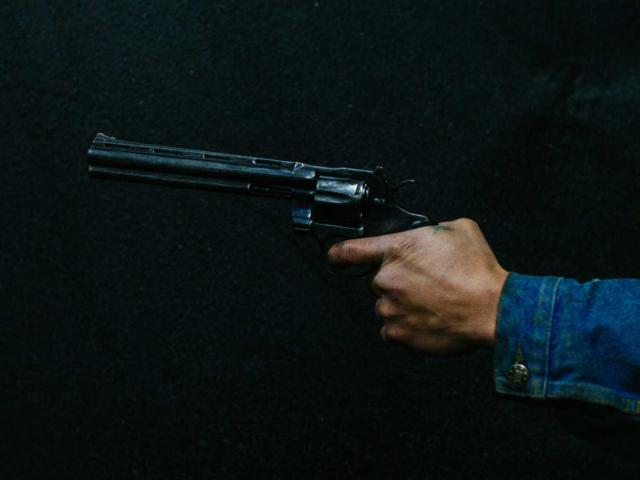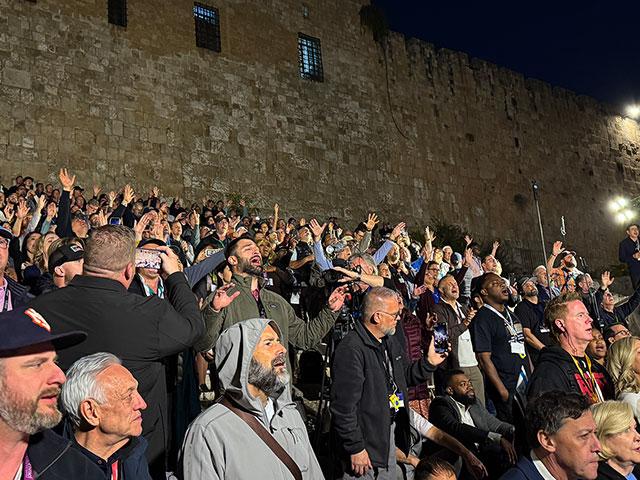CAP HAITIAN, Haiti -- Each morning Linsey Jorgenson wonders if the street children of Cap Haitian will choose the refuge she offers or try to survive on their own.
"The first thing I do is pray because you need God to do this job," Jorgenson said.
Building Trust
Jorgenson is the founder of Streethearts, an organization born from a bond with the kids who captured her heart.
"They're forced into adulthood at 5, 6, 7 years old and the longer they're on the street the harder it is to reverse their mentality, or to come in and try to help guide them, because at that point they've already been so wronged that they feel like they know everything and everybody is against them," Jorgenson explained.
Many of the children end up on the street because of poverty, abusive situations, or simply having no family.
Jorgenson first connected with the street children of Cap Haitian in 2012. She would literally run across them on her daily jogs along the Boulevard.
She soon discovered they shared something in common.
"It was kind of like I definitely stuck out and was the odd person in town and they also, in their way, are the odd ones left out in their communities," Jorgenson said. "They didn't have anyone; I didn't have anyone. We just started hanging out."
By earning their trust, she heard their stories.
"I was 6 when I was in the street. I had a friend named Zama and he was on the streets with me and some other street guys came and wanted to cut us with a blade. Everywhere I went to go to sleep they came and followed us with that razor blade," Ricardo Voltaire, one of the boys in Streethearts, recalled.
When asked, many of the boys gloss over the abuse they faced, choosing either to move past it or too embarrassed or traumatized to speak of it.
"In abusive situations we've seen everything from parents electrocuting children, and in that specific instance it's a shame because they're not doing it to torture the child. They're simply repeating what their parents did to them. They had no idea that that's wrong," Jorgenson said.
That's why Jorgenson started Streethearts. Her mission: create a safe haven for boys living on the streets of Haiti. The ministry recently realized it had an even bigger calling due to an increase in street violence.
"One thing we've seen a lot of recently is child sacrifice and that is due to the voodoo here. A voodoo doctor would come and, for whatever reason, someone would pay to steal a child's soul. So then they kill the child," Jorgenson explained.
"They basically stone them to death and then they'll take the soul of the child. Oftentimes, they'll take their teeth, or something, and then they'll do a spell and that soul gives whoever wants it power and influence," she said.
Tap Taps for Transportation
That evil led Streethearts to offer what's called "Phase One," where kids who aren't ready to fully leave the streets can catch a "tap tap," or Haitian taxi, that will take them to the Streethearts shelter. They receive a meal, shower, and clean bed for the night.
"We want them to know that when the day comes that they're ready to get off the street, we'll be there," Jorgenson said.
Then they officially join the program and move into a bigger shelter. A Streetheart team works with each boy teaching responsibility, discipline, and respect.
Most importantly, they learn they are somebody and that they are loved.
"We serve as father figures to them and we use that as a medical treatment in their lives," Venel Poliny, Streethearts' director of security, said.
Most days, Jorgenson feels a daily struggle between the weight of her work and the normalcy of it all.
"You never know what's going to happen. You don't know if a child is going to die that day, who's gonna be sick. And then on top of that you're dealing with basically the day-to-day mom stuff, which is school, soccer practice, this one's got this issue, one kid wants you to see his art project, running errands everywhere. And its not two children, its 75," Jorgenson said.
"Phase Three" helps those over 18 focus on workforce development. The Streethearts team finds partners to take on the kids as interns.
"After two years those children graduate and then are indoctrinated fully back into the community. Those children are monitored by a social worker so they do not stay at our facility. However, they do have to check in; they are given an apartment in the community that they pay for," Jorgenson said.
Relentless Progress
The progress can be slow. Transforming a hardened adult in the body of a 6-year-old back into a child takes time.
"It's imperative that you take a step back from time to time to just look at them and see how far they've come, whether its in their mannerisms, the way they dress, how they represent themselves," Jorgenson said. "One of our most troubled kids is president of his entire school."
Above all, Jorgenson's hope for these children is that she will see them in heaven.
"That is so important for me. When I die -- and I pray I die before them. I cannot see one more kid die -- I want to sit at the gate and just wait and watch them all come in," she said.
And so she presses on, relentlessly seeking the boys she hasn't yet been able to reach.
The kids know that every night the Streethearts tap tap will come, but it's still up to them whether they accept the help or stay on the streets.
Did you know?
God is everywhere—even in the news. That’s why we view every news story through the lens of faith. We are committed to delivering quality independent Christian journalism you can trust. But it takes a lot of hard work, time, and money to do what we do. Help us continue to be a voice for truth in the media by supporting CBN News for as little as $1.










 Support CBN News
Support CBN News







